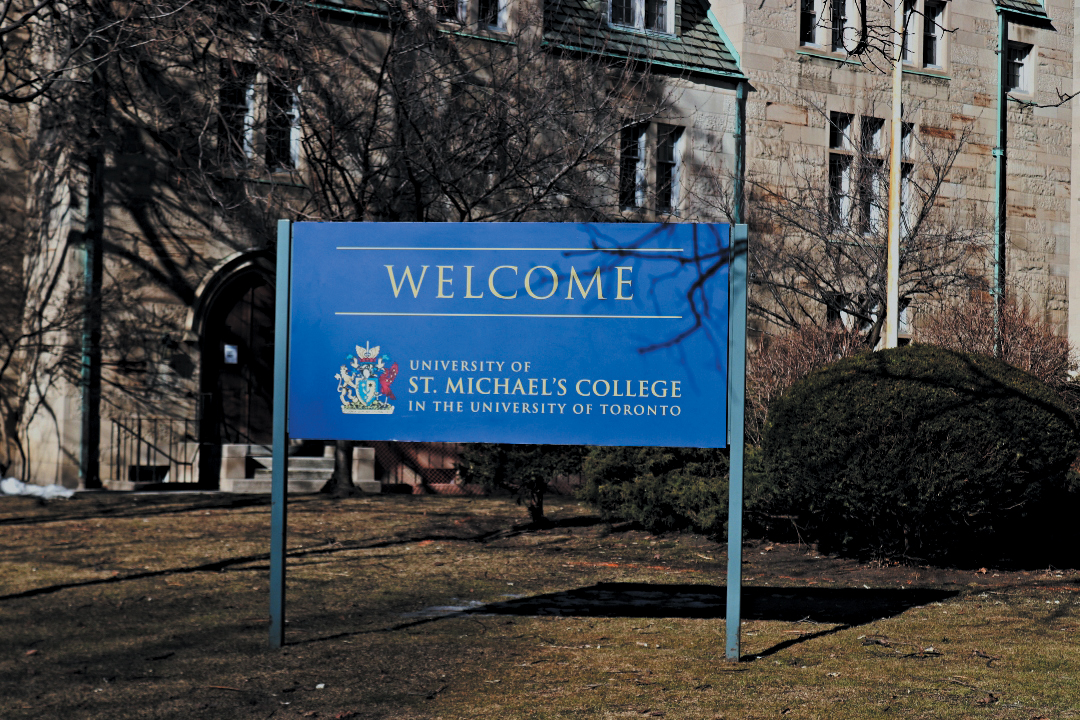On June 14, the Collegium of the University of St. Michael’s College (USMC) agreed to fully divest from investments in fossil fuel companies by 2030 or sooner. The decision was announced on June 20 in a statement on the USMC’s website.
USMC is the second federated U of T college to commit to divesting from fossil fuel companies, after Victoria University, which announced plans to divest in April.
The University of St. Michael’s College’s investment portfolio — which, as of 2022, totaled to $136,670 — has not included direct investments in fossil fuels since 2013. Still, the USMC has continued to indirectly invest in fossil fuel companies through funds shared between multiple investors, such as pooled funds.
Divestment at U of T
In 2021, U of T President Meric Gertler announced that the university would fully divest its $4 billion endowment from fossil fuel investments by 2030. By October 2022, the University completely divested from direct investments in fossil fuel companies.
The university’s decision to divest from fossil fuels did not include investments from the three federated Faculty of Arts & Sciences colleges — Victoria University, the University of Trinity College, and the USMC — which operate their own independent endowments.
Since U of T’s announcement, student activists have repeatedly called on the university’s federated colleges, including USMC, to divest their portfolios from fossil fuels. In April 2023, Victoria University became the first federated college at U of T to commit to divesting from fossil fuel companies by 2030. This decision came after Climate Justice UofT — a student activist group — occupied Victoria College’s “Old Vic” building for 18 days.
After USMC announced its own divestment pledge, Climate Justice UofT was quick to applaud the news on Twitter and Instagram, renewing its calls for divestment from all three federated colleges.
Mathis Cleuziou, a third-year student studying environmental and political science and an organizer at Climate Justice UofT, told The Varsity that this announcement only came after years of behind-the-scenes student advocacy, including meetings with USMC administration in which they discussed divestment.
Boomba Nishi is another organizer at Climate Justice UofT, who’s double majoring in ethics, society and law and critical studies in equity and solidarity, with a minor in Asian Canadian Studies. He told The Varsity, “We either succeed or the world burns. So it’s really important that people join this movement and dedicate what they can do to help limit the damage and to save what we love.”
The University of Trinity College has yet to announce any plans to divest.
The Collegium decision
The USMC’s Collegium, which released the decision, is an organization that manages the federated college’s resources. The Collegium’s decision to completely divest from fossil fuels is part of USMC’s commitment to sustainability — one of the three priorities in St. Mike’s 180, the federated college’s strategic plan for its 180th anniversary in 2032, along with community and education.
According to the statement released by the USMC on its website, “Complete divestment from fossil fuels builds on USMC’s established initiative of investing according to its institutional values.” It highlighted the federated college’s work with the Shareholder Association for Research & Education (SHARE) since 2016 to facilitate “just and humane” environmental practices among investees.
The statement further quoted USMC President David Sylvester, who said, “The Collegium’s decision resonates powerfully with [the USMC’s] tradition, and with our university’s vision to be a recognized leader in promoting respectful dialogue and action to advance the care of our common home.”
The University of St. Michael’s College has not yet provided comment.
Editor’s note (June 28): This article was updated to include comment from Climate Justice UofT and information on the size of the USMC’s investment portfolio.


